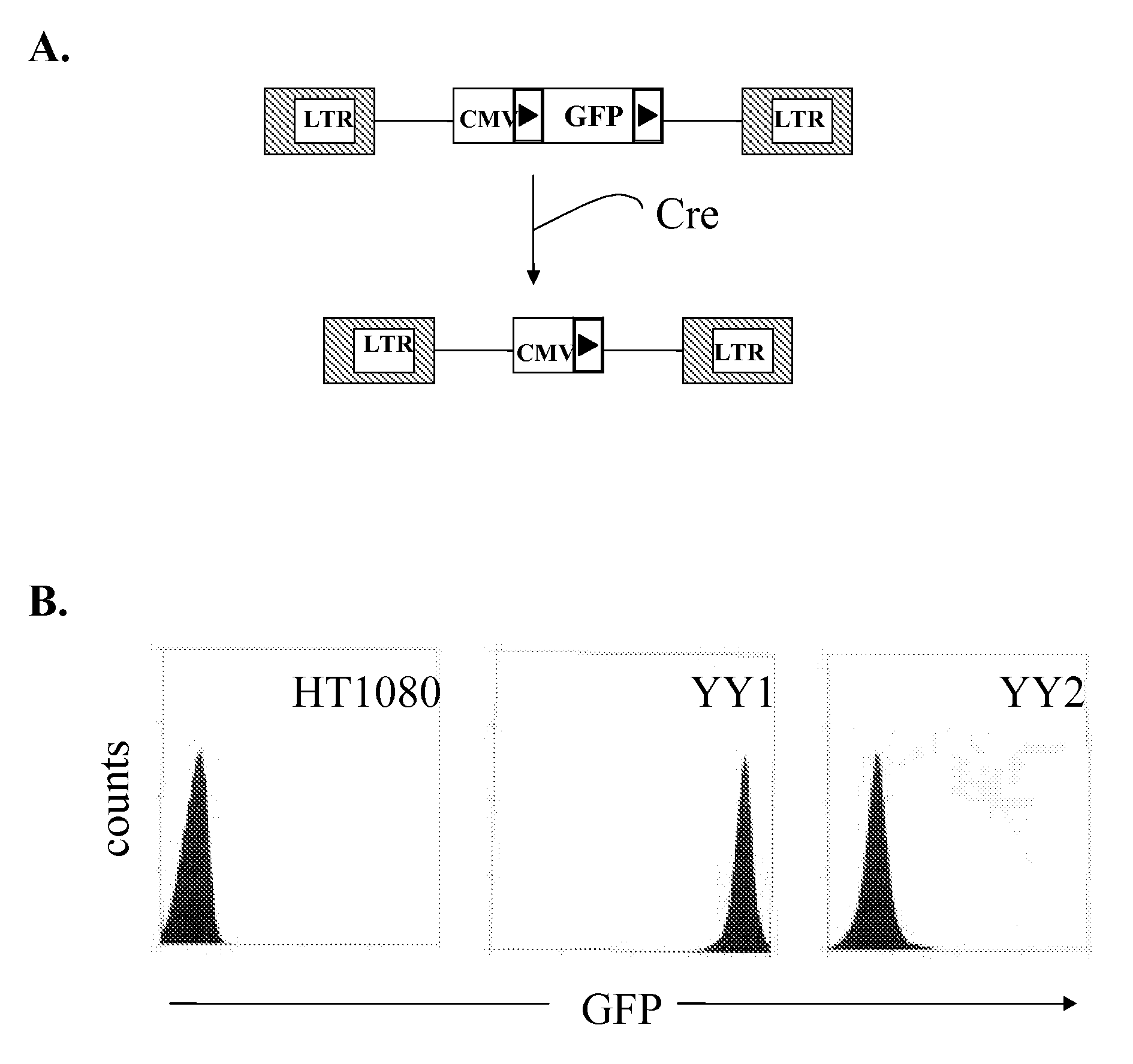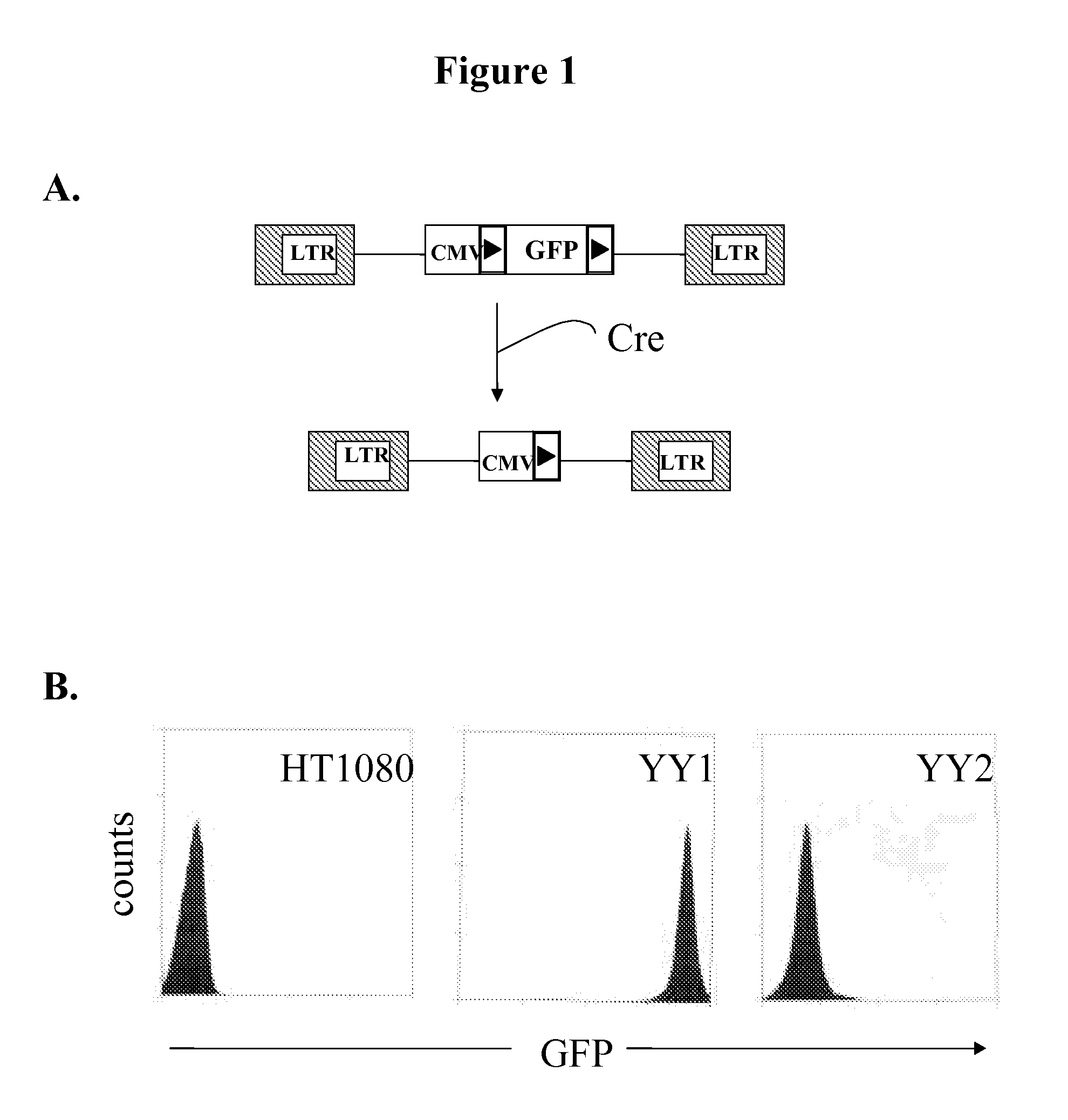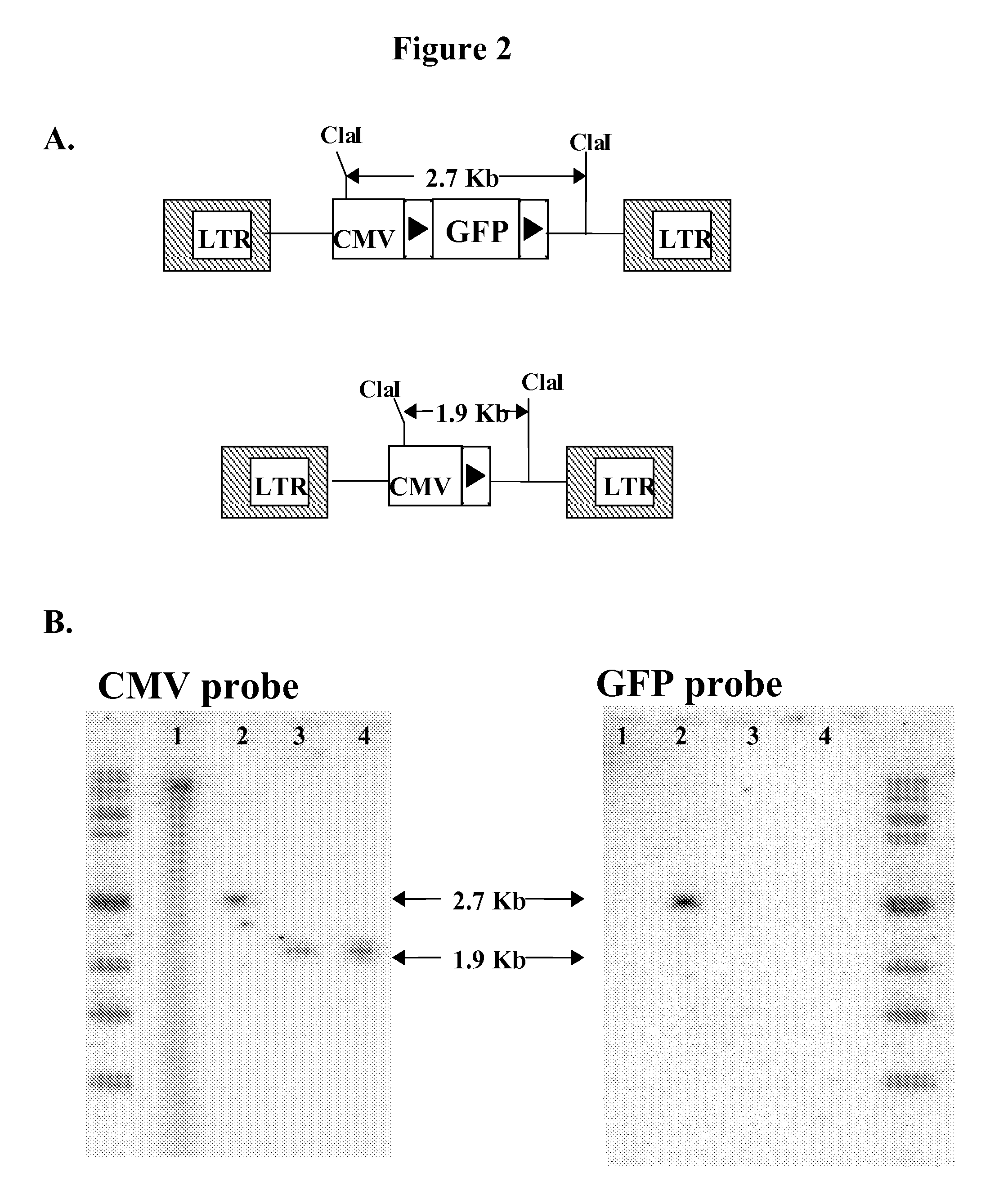Novel lentiviral vectors for site-specific gene insertion
a lentiviral vector and site-specific technology, applied in the field of gene delivery, can solve the problems of inability to infect and integrate into non-dividing cells, inability to achieve hematopoietic repopulation cells more efficiently, and inability to disrupt or unanticipated gene activation, etc., to achieve the effect of facilitating recombination
- Summary
- Abstract
- Description
- Claims
- Application Information
AI Technical Summary
Benefits of technology
Problems solved by technology
Method used
Image
Examples
example 1
Creation of a YY2 Cell Line Containing a Single loxP Site
[0049]To test site-specific gene insertion by the HIV-based targeting vector, a cell line was established containing a single loxP site to serve as the target for HIV vector-mediated gene insertion. Human fibrosarcoma HT1080 cells were transduced with an MLV vector containing the green fluorescent protein (GFP) gene flanked by two loxP sites. GFP expression from this vector was controlled by the immediate early (IE) gene promoter of CMV. A basic schematic of this vector is shown in FIG. 1A. Transduced cells were sorted by FACS on the basis of GFP expression, and a single GFP-positive clone (YY1) was selected for study. YY1 expressed high levels of GFP in comparison to the parental HT1080 cells (FIG. 1B). Southern blot analysis indicated that YY1 cells contained only a single copy of the proviral genome (data not shown).
[0050]To generate the target loxP site for gene insertion, YY1 cells were transfected with pBS185, a Cre expr...
example 2
Incorporation of Cre Protein into HIV Viral Particles
[0054]HIV vector DNA is wrapped in the PIC following reverse transcription, making it difficult for Cre to access the DNA for site-specific insertion. To overcome this problem, Cre was incorporated into HIV particles as a fusion protein with Vpr. Vpr is an HIV accessory protein that is efficiently incorporated into HIV particles. Vpr is also a component of the PIC, serving to actively mediate HIV-1 viral DNA nuclear transport (Heinzinger 1994). This means that Vpr is likely to be in close contact with viral DNA during viral infection and replication. It was hypothesized that fusion of Cre to Vpr might enable Cre to be incorporated into HIV vector particles. If the HIV vector also includes a gene of interest containing a loxP site, the close proximity of the Vpr-Cre fusion protein and this loxP site may facilitate the interaction between these two components. This in turn may allow for more efficient insertion of the gene of intere...
example 3
Site-Specific Gene Targeting by an HIV Vector
[0060]To test for site-specific gene insertion, an exogenous polynucleotide sequence containing the neo gene preceded by a single loxP site was inserted into the 3′LTR of pHIV7 (FIG. 7A). Since the neo gene contains no promoter, only site-specific insertion of the gene into the loxP site in YY2 cells would place the gene under the control of the CMV IE promoter and confer G418-resistance to the cells. Only a single loxP-neo polynucleotide sequence was inserted into the U3 region of the 3′LTR because Vpr-Cre expression in vector-producing 293T cells would remove any neo gene flanked by two loxP sites. Upon transduction, the same neo polynucleotide sequence will appear in both LTRs, because the U3 region in the 3′LTR serves as the template for the generation of U3 in both LTRs during reverse transcription (FIG. 7B). It was hypothesized that in the transduced cells, recombination would take place between the two loxP sites in the HIV vector ...
PUM
 Login to View More
Login to View More Abstract
Description
Claims
Application Information
 Login to View More
Login to View More - R&D
- Intellectual Property
- Life Sciences
- Materials
- Tech Scout
- Unparalleled Data Quality
- Higher Quality Content
- 60% Fewer Hallucinations
Browse by: Latest US Patents, China's latest patents, Technical Efficacy Thesaurus, Application Domain, Technology Topic, Popular Technical Reports.
© 2025 PatSnap. All rights reserved.Legal|Privacy policy|Modern Slavery Act Transparency Statement|Sitemap|About US| Contact US: help@patsnap.com



